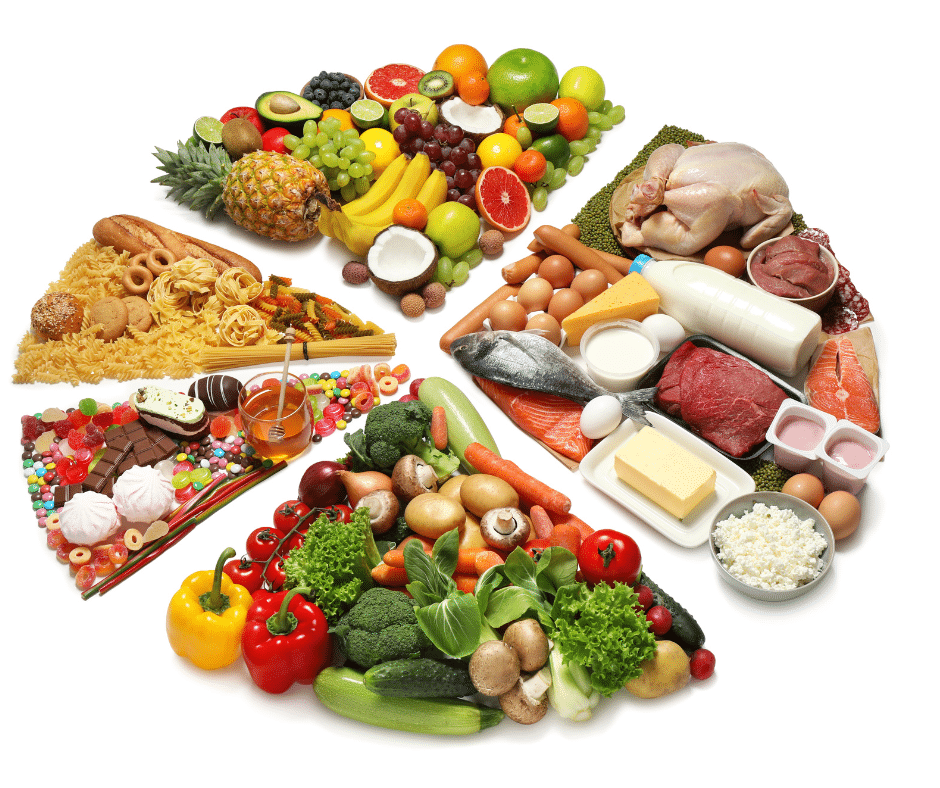Copyright © 2023 Tactus Health, USA. All rights reserved
Marketing and Web Design Powered by Cybriix Marketing
In the pursuit of a healthier lifestyle, achieving and maintaining a balanced and sustainable diet is paramount. Expert tips for a sustainable diet take center stage as we explore the key to effective weight loss.
It’s not about extreme measures but creating a nourishing and lasting relationship with food. This blog post offers insights and proven strategies that promote weight loss while ensuring optimal nutrition.

Embarking on a journey toward a healthier lifestyle involves more than just counting calories. Below are some expert insights that make crafting a sustainable diet a game-changer in your weight loss goals.
In this comprehensive guide, we delve into proven strategies to foster a balanced approach, ensuring not only effective weight loss but also long-term well-being.
Understanding the fundamental components of a balanced diet is paramount for sustainable weight loss. Macronutrients, including proteins, carbohydrates, and fats, play distinct roles.
Proteins contribute to muscle preservation, ensuring the body’s structural integrity. Carbohydrates are vital energy sources, fueling daily activities. Meanwhile, healthy fats support essential bodily functions, promoting overall well-being.
Achieving the delicate equilibrium among these macronutrients is key to fostering lasting and effective weight loss. By comprehending their roles and proportions, you can make informed dietary choices, creating a foundation for a healthier lifestyle and achieving weight loss goals that stand the test of time.
Choose nutrient-dense whole foods over processed options to optimize your diet. Whole foods, including vibrant vegetables, fresh fruits, lean proteins, and wholesome grains, form the cornerstone of a nutritionally rich eating plan.
Packed with essential vitamins, minerals, and fiber, these natural choices provide the body with vital nutrients without the burden of excessive calories.
Embracing a foundation of whole, unprocessed foods not only supports overall health but also facilitates weight management.
By prioritizing these nourishing options, individuals can enhance their well-being, promote satiety, and establish a sustainable approach to healthy eating for effective and lasting weight loss.

Mindful attention to portion sizes is pivotal in preventing overeating. Opt for smaller plates as a simple yet effective strategy.
Tune in to your body’s hunger signals, allowing them to guide your eating pace and quantity. Embrace the practice of savoring each bite consciously, promoting a heightened awareness of flavors and textures.
This mindful approach not only regulates calorie intake but also fosters a deeper connection with the act of eating.
By implementing these portion control techniques, individuals can navigate a path to healthier eating habits, achieving weight loss goals while still relishing the pleasure of food without a sense of deprivation.

Maintaining optimal hydration is crucial for overall health and effective weight management. Frequently, the body misinterprets signals of thirst as hunger, leading to unnecessary calorie consumption.
Adequate water intake not only supports various bodily functions but also contributes to weight loss by inducing a sensation of fullness.
By staying consistently hydrated, individuals can discern genuine hunger from dehydration-related cues, facilitating wiser dietary choices.
This simple yet powerful practice not only benefits overall well-being but also aligns with weight loss objectives. Embrace hydration as a cornerstone of your daily routine, fostering a healthier, more balanced lifestyle.
Crafting well-rounded meals involves a thoughtful balance of macronutrients, a key principle for sustained energy and satiety. Consider pairing lean proteins with nutrient-rich whole grains and an array of colorful vegetables to create a harmonious blend.
This strategic combination not only fuels the body with essential nutrients but also promotes a prolonged sense of fullness, curbing unnecessary snacking.
Striving for diversity in each meal ensures a comprehensive intake of proteins, carbohydrates, and fats, aligning with a holistic approach to nutrition.
Embrace the power of balanced macronutrients to nourish your body, enhance energy levels, and foster a sustainable foundation for effective weight management.

Don’t shy away from fats; instead, opt for healthy sources such as avocados, nuts, and olive oil. Contrary to popular belief, these fats are beneficial, fostering a feeling of fullness and aiding in the absorption of vital nutrients.
By incorporating these nutrient-rich options into your diet, not only do you elevate the taste of your meals, but you also contribute to a well-rounded nutritional approach.
Embracing these healthy fats aligns with weight management objectives, providing sustained energy and supporting overall well-being.
Diversify your culinary choices with these nourishing options to unlock their myriad benefits for both satiety and nutrient absorption.
Planning meals in advance helps avoid impulsive food choices. By preparing snacks and meals rich in essential nutrients, you create a structured approach that aligns with your dietary goals.
This proactive method not only safeguards against unhealthy choices but also simplifies adherence to your nutritional objectives.
Having nourishing options readily available reduces the temptation for less nutritious alternatives, making it easier to sustain a wholesome eating plan.
Embrace the practice of meal planning to fortify your commitment to a balanced diet, fostering both convenience and success on your journey toward healthier living.

Embracing mindful eating goes beyond mere consumption; it’s about relishing every bite, tuning into hunger and fullness cues, and immersing oneself in the sensory delight of food.
This intentional approach not only cultivates a healthier relationship with eating but also becomes a cornerstone for effective weight loss.
By savoring the flavors and paying attention to the body’s signals, individuals can make informed and satisfying choices.
Mindful eating encourages a balanced and sustainable approach to weight management, emphasizing the importance of connecting with the eating experience.
In the journey towards well-being, mindfulness becomes a guiding principle, transforming meals into moments of nourishment and awareness.
In the realm of weight loss, protein-rich foods emerge as essential allies, ensuring the preservation of muscle mass. Incorporating sources like lean meats, beans, and tofu into every meal becomes a strategic move to support this crucial objective.
Not only do these protein-rich choices aid in maintaining muscle integrity, but they also contribute significantly to satiety.
By including protein consistently throughout the day, you cultivate a sense of fullness that helps stave off hunger, making it more manageable to adhere to dietary goals.
This emphasis on protein not only fosters effective weight loss but also reinforces a holistic approach to nutritional well-being.
Embracing a healthy lifestyle doesn’t mean complete deprivation; it’s about balance. Grant yourself occasional treats, consumed in moderation.
Strict diets can trigger cravings and foster unsustainable eating habits. By allowing controlled indulgences of your favorite treats, you not only satisfy your cravings but also promote a more sustainable approach to eating.
This balance encourages a positive relationship with food, making your journey towards a healthier lifestyle enjoyable and realistic.
Remember, it’s not about saying “no” to everything; it’s about making mindful choices that contribute to your overall well-being. So, savor those treats wisely and relish in the joy of a balanced approach to nutrition.
Crafting a balanced and sustainable diet for weight loss is a deeply personal journey, requiring a nuanced understanding of nutrition principles.
Prioritize whole foods, including nutrient-dense options like lean proteins, vibrant vegetables, and wholesome grains. Embrace mindful eating practices, savoring each bite to foster a healthier relationship with food.
Remember, this isn’t about quick fixes but building habits that support your overall well-being. By incorporating these expert tips for a sustainable diet into your daily life, specifically focusing on mindful choices and nutrient-dense options, you embark on a transformative path to lasting success.
Witness the power of a balanced and sustainable approach to weight loss, tailored to your unique needs and preferences.
Copyright © 2023 Tactus Health, USA. All rights reserved
Marketing and Web Design Powered by Cybriix Marketing